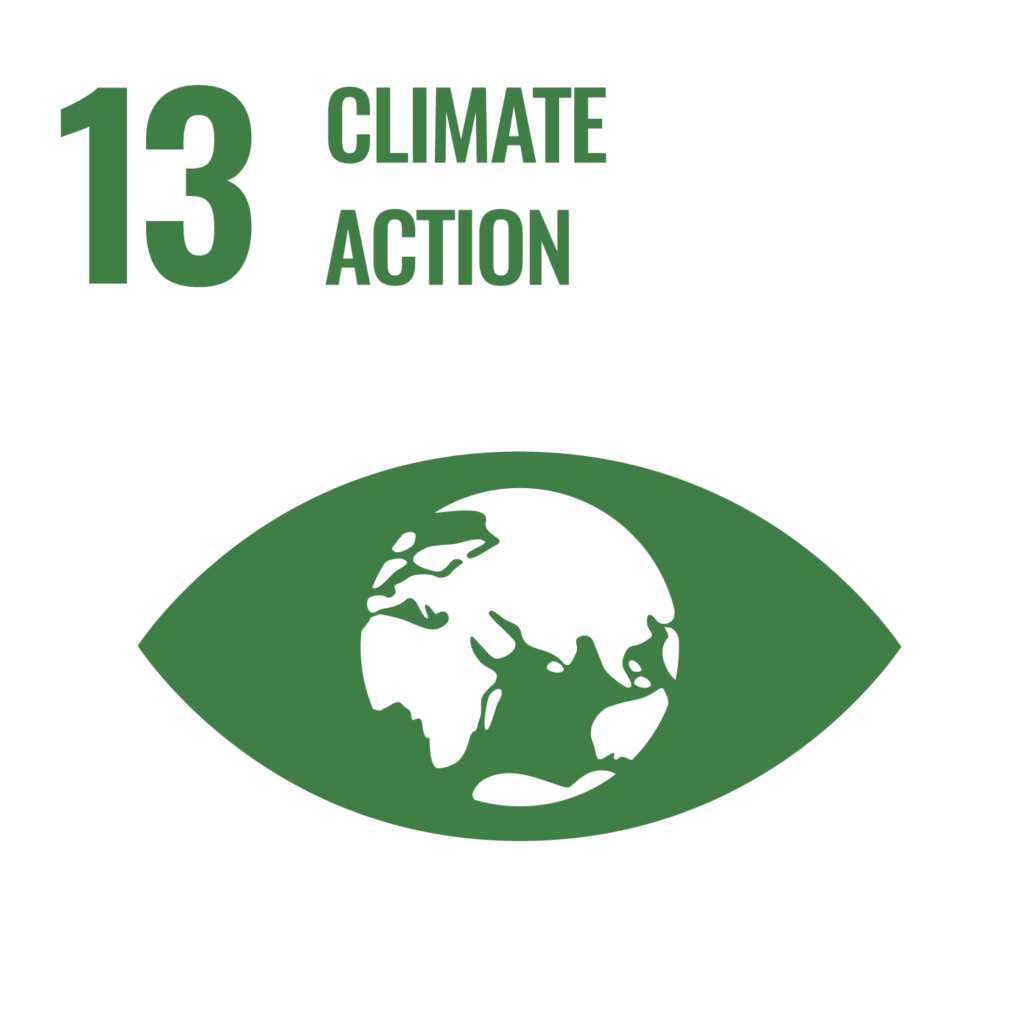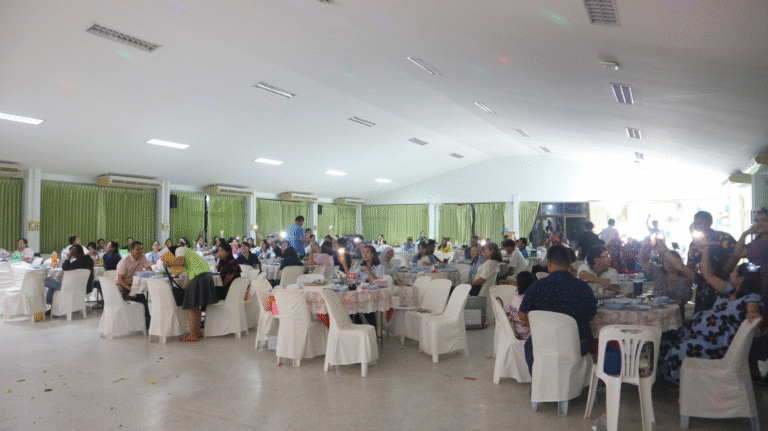Reporters:
Asst. Prof. Dr. Nattapon Kaewthong
Asst. Prof. Chayanat Buathongkua
Asst. Prof. Tanakorn Inthasuth
Ms. Sayamon Buddhamongkol
Ms. Duanrung Chooyruang
Evidence Date:
July 21, 2023, September 5, 2023
Related Indicators:
13.3.2
Details:
Rajamangala University of Technology Srivijaya focuses on promoting education and knowledge transfer related to environmental conservation and sustainable energy use. This is achieved through integrated teaching approaches that align with sustainable development concepts, supporting SDG 13 (Climate Action). Relevant activities and lectures include:
1. Development of an Aquaponics Innovation and Business Curriculum
On September 5, 2023, Phumintorn Inpan, a lecturer in Computer and Communication Engineering, was invited as a guest speaker for a project aimed at transforming learning in modern agriculture through innovative, integrated curriculum development in aquaponics innovation and business. His presentation, titled “Innovation and Internet of Things Technology for Aquaponics Systems,” was delivered to entrepreneurs, the public, staff, and students to enhance new education models in collaboration with industry and to develop a “Run Skill” curriculum supporting agricultural business education. This event was organized by the Faculty of Science and Fisheries Technology at the 80th Anniversary Building, Rajamangala University of Technology Srivijaya, Trang Campus.
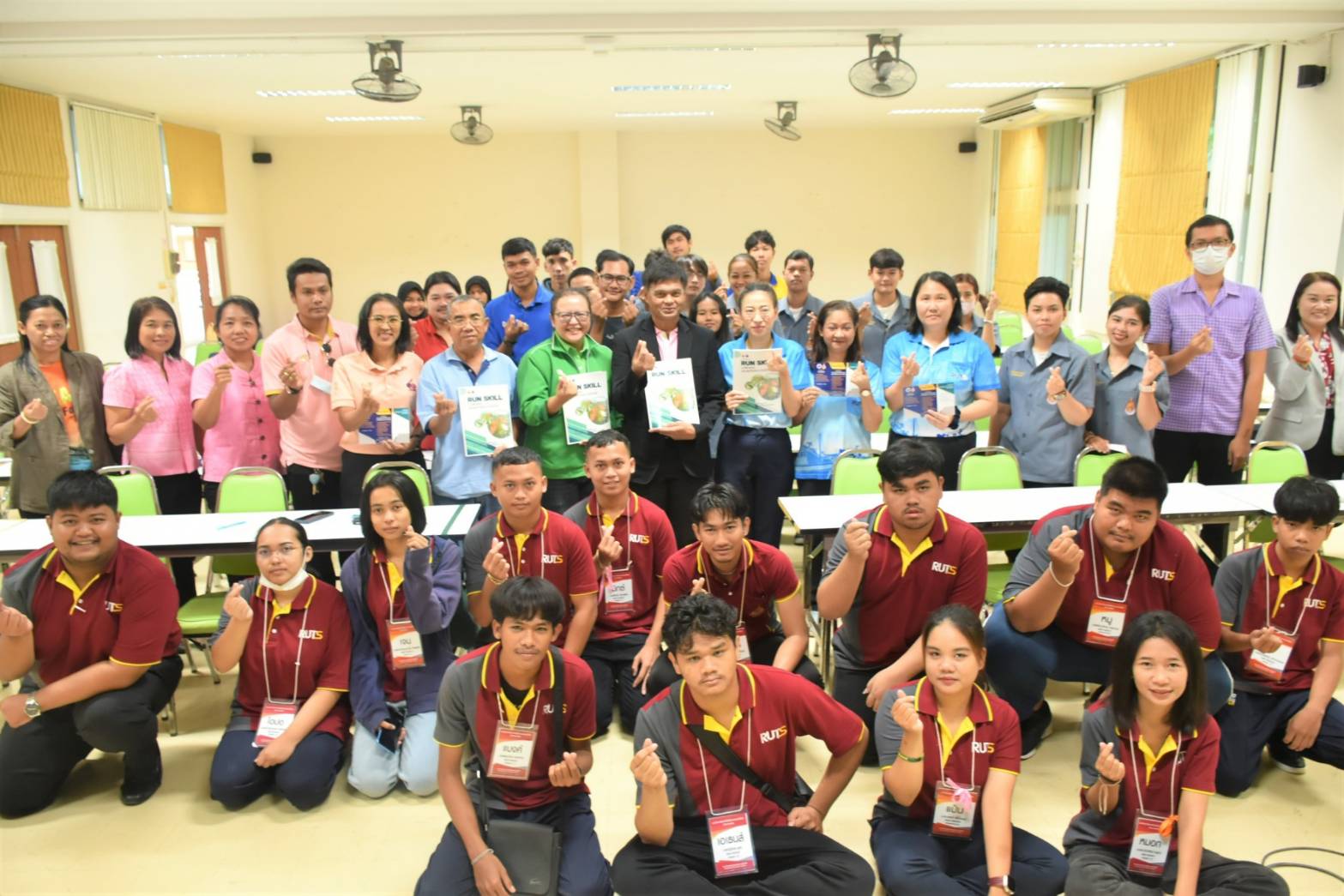
The aquaponics system integrates plant cultivation and fish farming, which not only reduces water consumption but also minimizes the use of agricultural chemicals, making this innovative approach environmentally friendly. This lecture helped participants understand the role of IoT technology in enhancing agricultural management efficiency. It also provided practical insights that attendees could apply to their own agricultural businesses, promoting hands-on learning that supports sustainable resource and energy use.
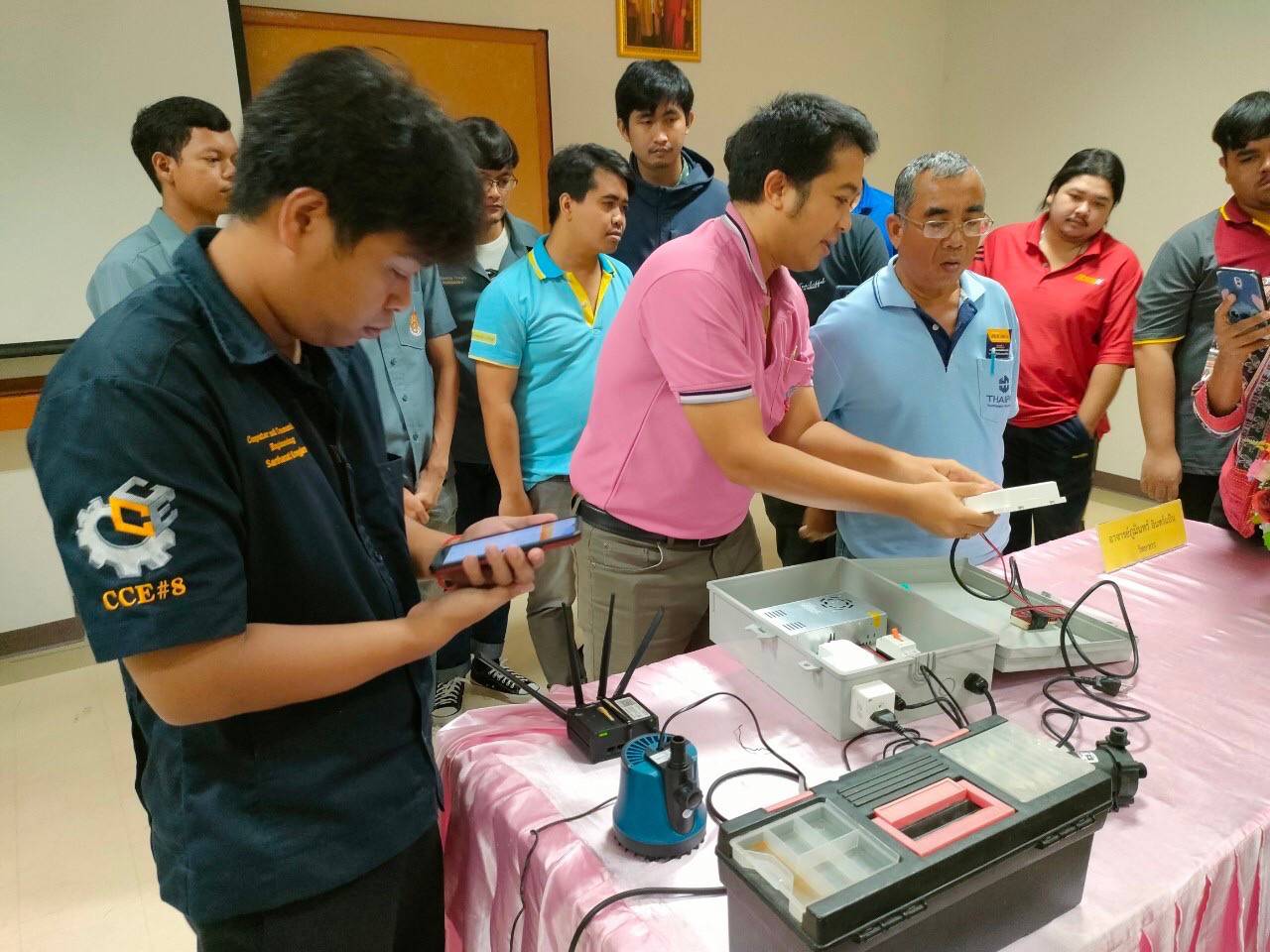
2. Training and Lecture on Energy Conservation and Renewable Energy Use
On July 21, 2023, Assistant Professor Kittikorn Khankaew, Dean of the Faculty of Engineering and Technology, led a training session on natural resource and environmental conservation for residents of Thung Yao Municipality. This training covered essential topics, including energy conservation at home and in offices, calculating electricity rates, using renewable energy such as solar power, safe energy practices, and reducing fossil fuel consumption. It aimed to increase participants’ knowledge, understanding, and awareness of daily energy conservation.
The lecture also enhanced skills in efficient energy use for households and businesses. Participants learned practical energy-saving techniques, such as switching off unnecessary lights and devices, using energy-efficient light bulbs, and calculating electricity rates to reduce costs and energy consumption. This activity supported participants in developing energy conservation skills that could be applied in daily life, aligning with sustainable living principles in society.
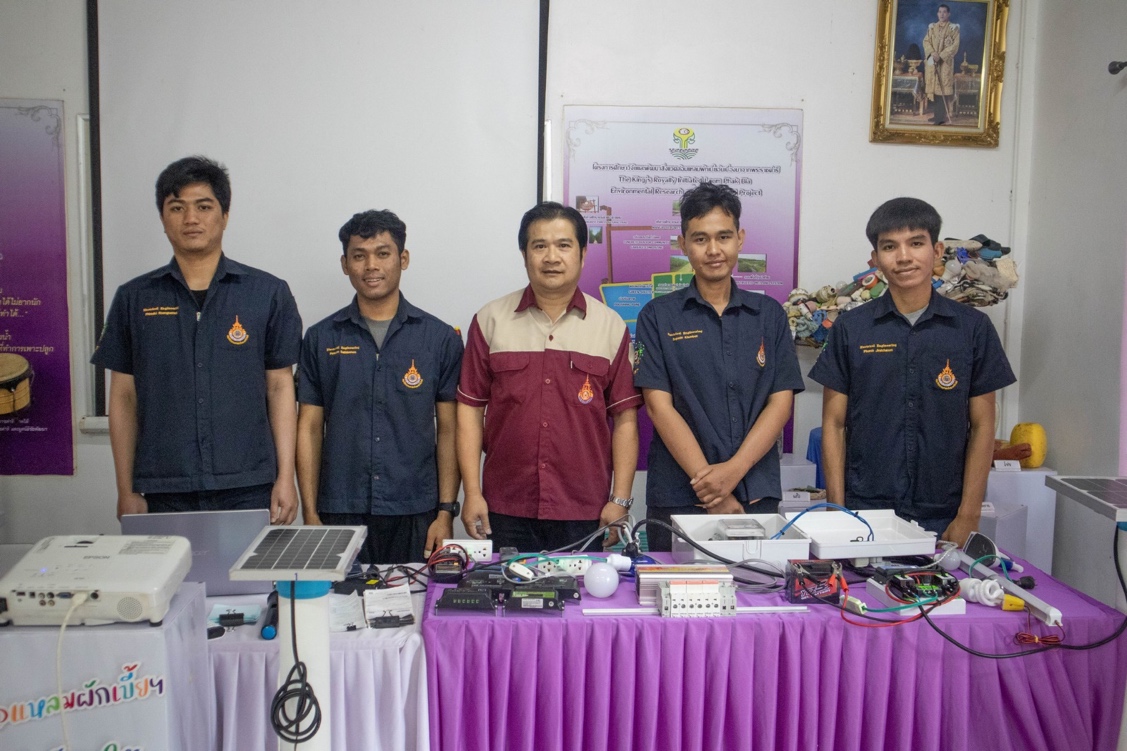
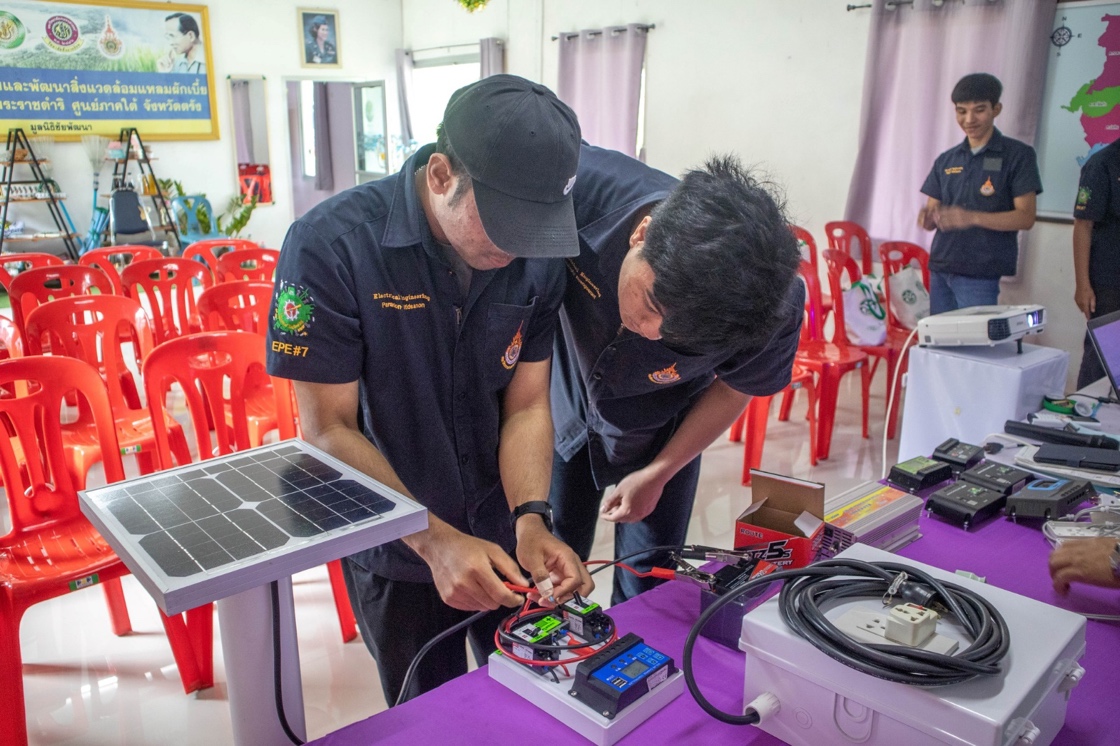
Integrating Learning for Sustainable Development
Rajamangala University of Technology Srivijaya is committed to integrating environmental learning and innovation into its curriculum, enabling students to develop skills and knowledge related to sustainable natural resource and energy management. The courses and activities emphasize not only theoretical learning but also the practical application of technology in real-life scenarios, helping students to implement these concepts in daily life and their careers.
The energy conservation and renewable energy lecture is a prime example of how the university uses scientific and technological knowledge to promote community learning. This initiative raises awareness of the potential impacts of unsustainable energy use, encouraging local residents to manage resources and reduce environmental impact concretely. Additionally, the aquaponics lecture exemplifies how creative solutions in agriculture can be fostered through appropriate technology.
The university has developed curricula that integrate sustainable development concepts across various areas, from efficient energy use and renewable energy adoption to environmentally friendly agricultural system design. This integrated learning approach enhances students’ problem-solving skills and prepares them to be conservation-minded innovators, ready to create and develop eco-friendly innovations for a sustainable society.
Related Link:

